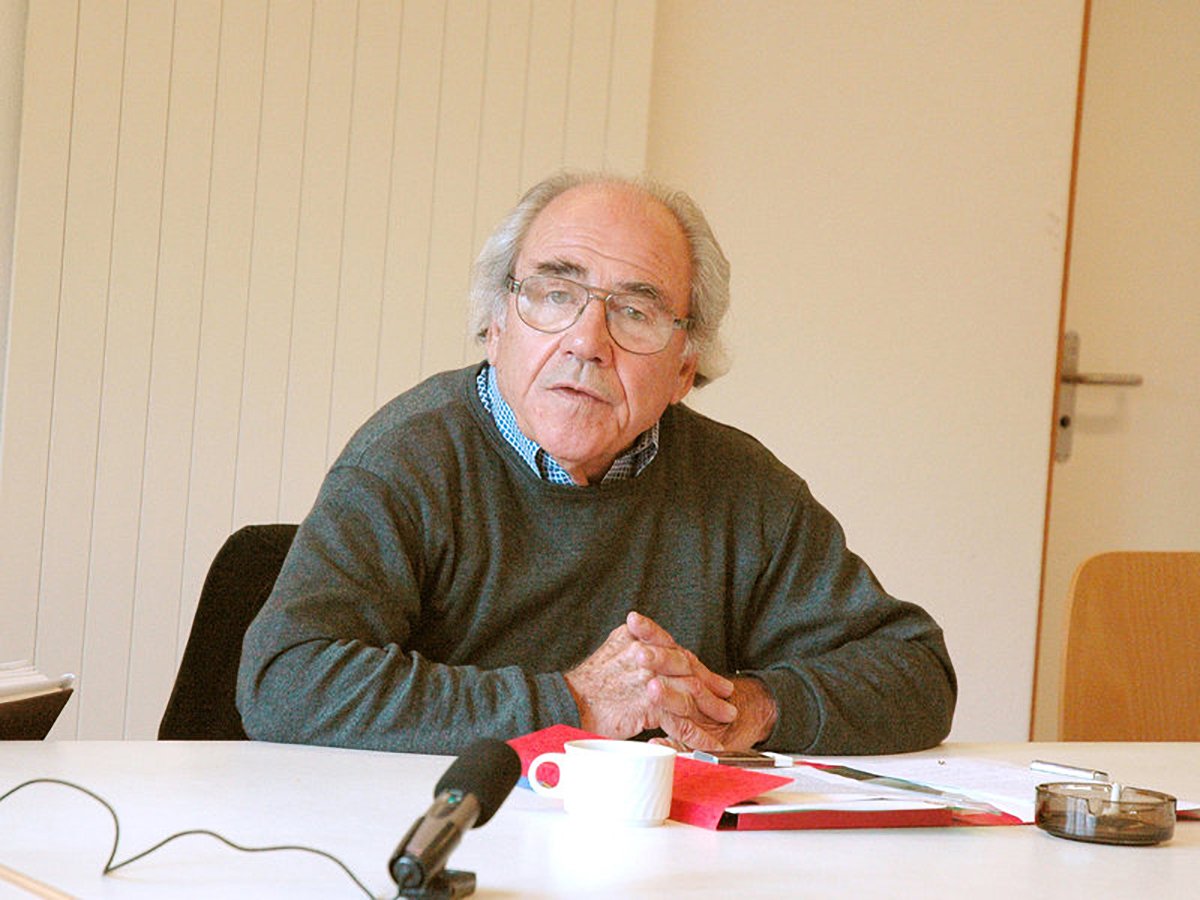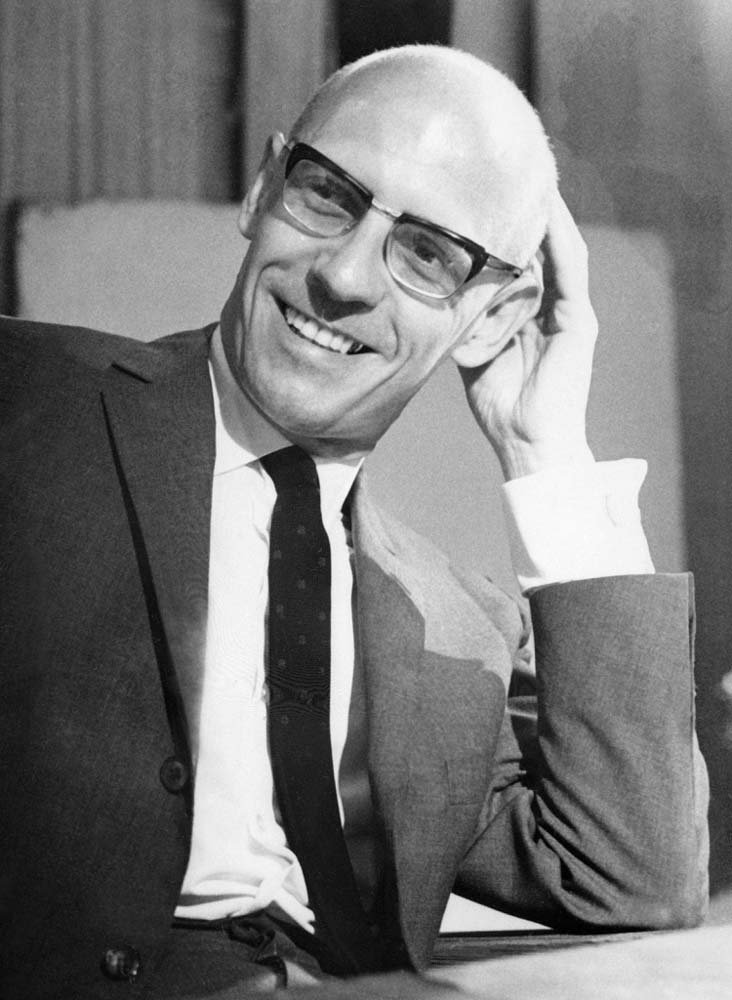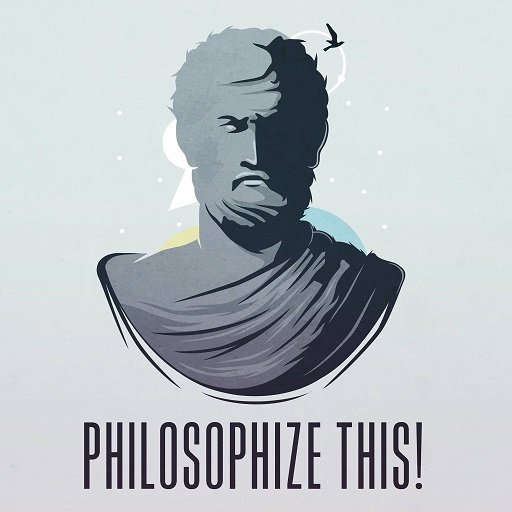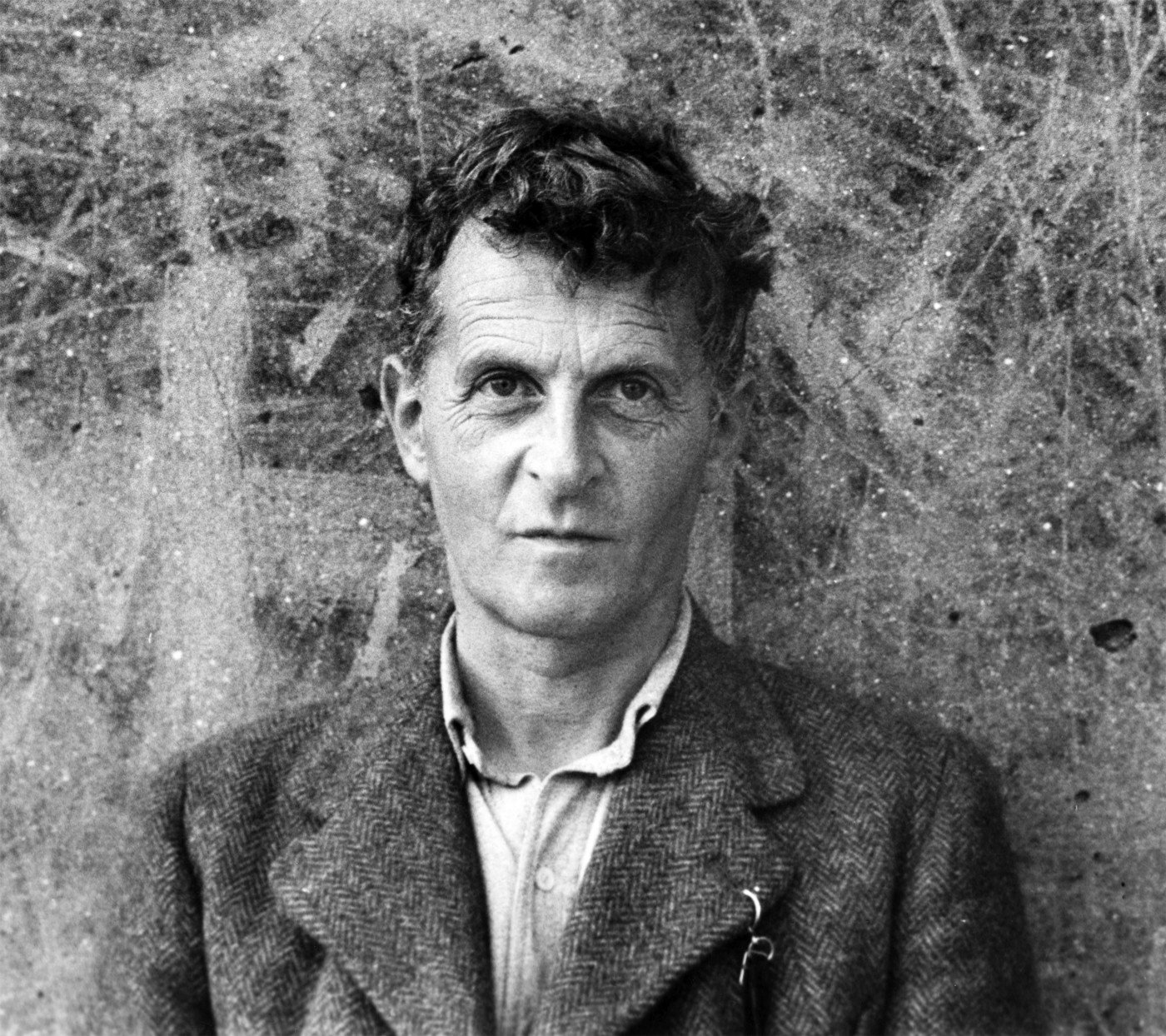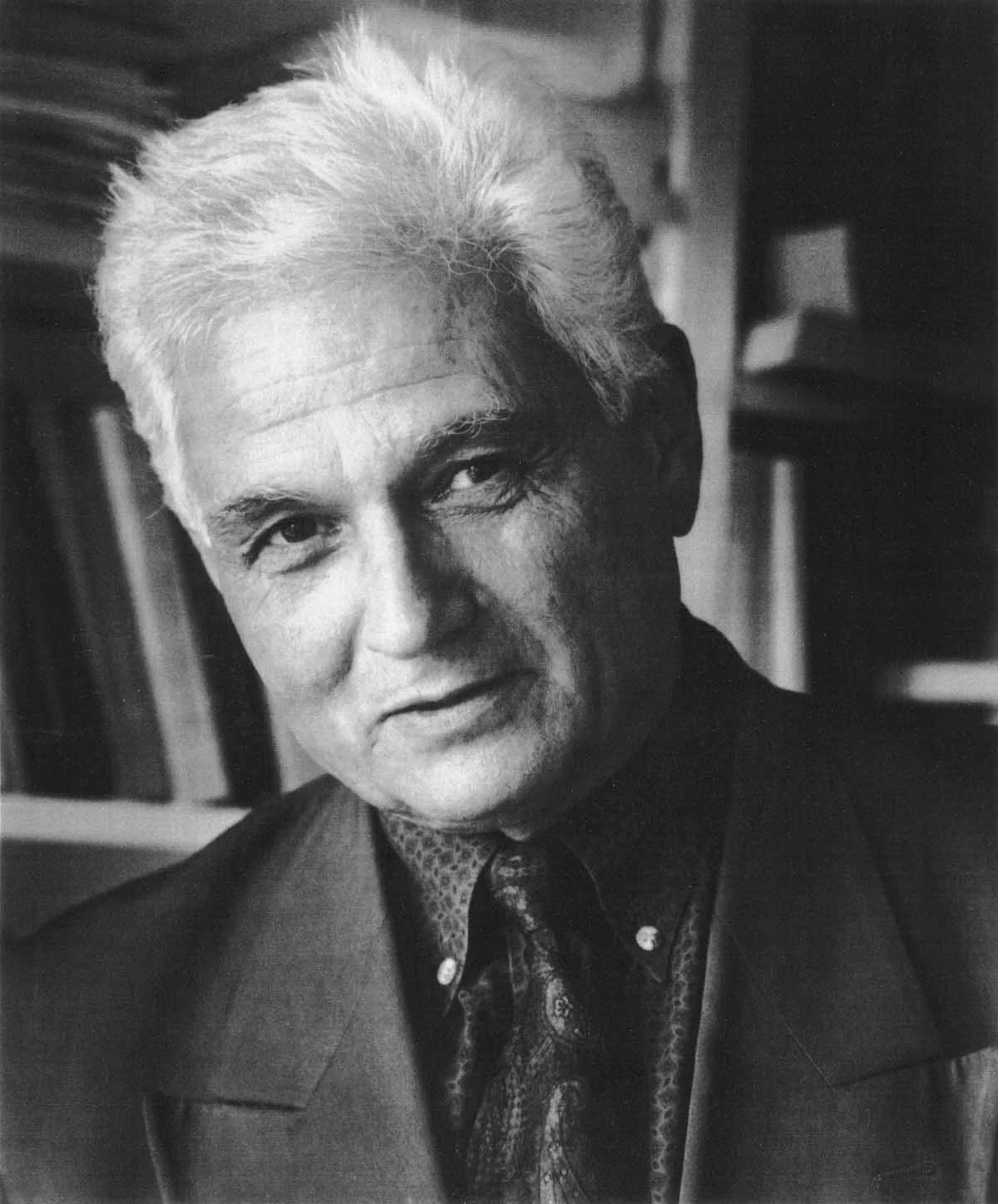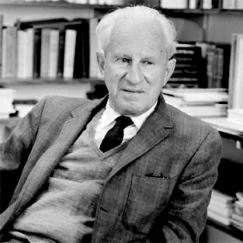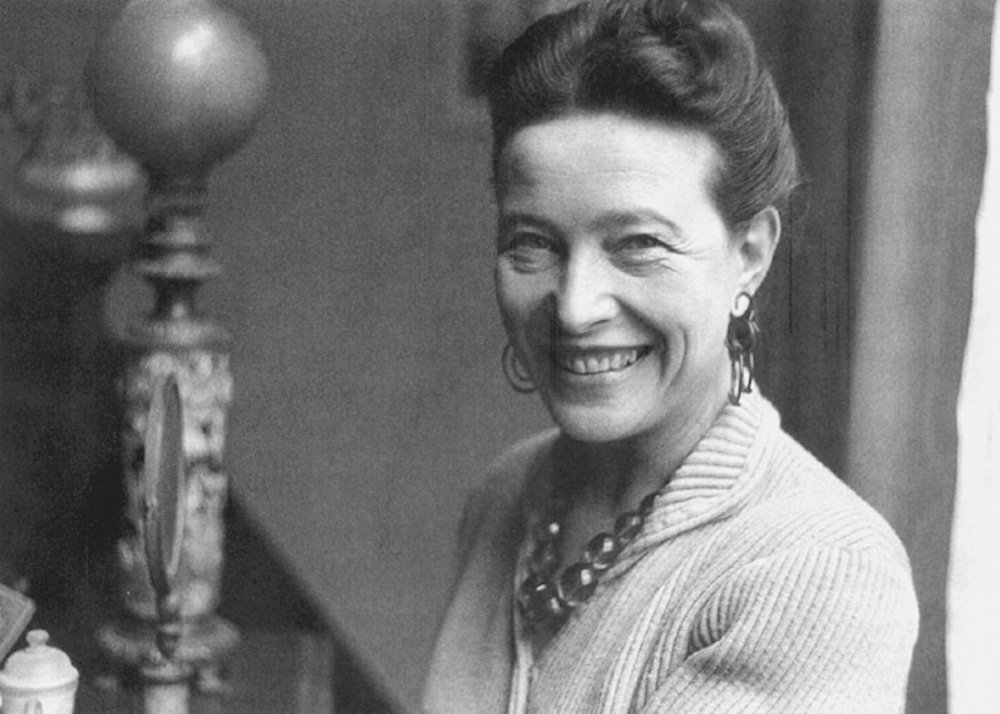Episode #124 - Simulacra and Simulation
Episode #124 - Simulacra and Simulation
In this episode, the show explores Jean Baudrillard’s Simulacra and Simulation, expanding on earlier discussions of post-structuralist thinkers like Michel Foucault. Foucault showed how categories such as “sane” or “criminal” aren’t timeless truths but historical constructs shaped by shifting systems of power. Building on this, Baudrillard argues that in our media-saturated, consumer-driven world, we no longer engage with reality itself—we engage with simulations: layers of signs and images that imitate reality while gradually replacing it. Using The Matrix as a metaphor, the episode illustrates how modern identity is no longer anchored by grand narratives but assembled through consumer choices, with people expressing who they are through the products they buy and the symbols they display. These signs, crafted and reinforced by media, become the language of identity in a world where meaning is fluid and unstable. The episode also explores how this simulation affects our understanding of global events, pointing to Baudrillard’s claim that “The Gulf War Did Not Take Place”—not to deny the war’s existence, but to highlight how, for most people, it was experienced entirely through televised imagery and curated sound bites. In the end, the episode paints a picture of a fragmented society, where individuals—isolated and immersed in their own media bubbles—move past one another like cars on a freeway, surrounded by representations that feel real, but never quite are.
Further Reading:
Poststructuralism: A Very Short Introduction by Catherine Belsey (2002)
Simulacra and Simulation by Jean Baudrillard (1994)
The Mode of Information: Poststructuralism and Social Contexts by Mark Poster (1990)
See the full transcript here.
Thank you to everyone who makes this podcast a possibility in the future.
I could never do this without your support! :)
Episode #123 - Michel Foucault Pt. 3 - Power
Episode #123 - Michel Foucault Pt. 3 - Power
This episode continues the series on Michel Foucault by exploring how he challenged the idea that truth is universal and progress is rational. Building on earlier discussions of Kant, science, and criminal justice, it focuses on Madness and Civilization, where Foucault argues that modern approaches to mental illness are not more humane, but part of a broader system that objectifies and controls people under the guise of care. His method evolves from “archaeology,” which uncovers forgotten ways of thinking, to “genealogy,” which traces how ideas develop through power. Foucault reveals that modern power is no longer top-down and repressive, but diffuse and productive, shaping norms, behaviors, and identities through what he calls biopower. Rather than silencing us, power invites confession, self-surveillance, and conformity to scientific discourse. The episode closes by emphasizing that Foucault’s aim isn’t to replace dominant narratives, but to question them—revealing how they shape our lives and asking what might lie beyond them.
Further Reading:
Foucault: A Very Short Introduction by Gary Gutting (2005)
The Philosophy of Foucault by Todd May (2006)
Biopower: Foucault and Beyond edited by Vernon W. Cisney and Nicolae Morar (2015)
See the full transcript here.
Thank you to everyone who makes this podcast a possibility in the future.
I could never do this without your support! :)
Episode #122 - Michel Foucault Pt. 2 - The Order of Things
Episode #122 - Michel Foucault Pt. 2 - The Order of Things
This episode continues the exploration of Michel Foucault by examining how scientific knowledge is shaped not just by discovery, but by deep, often invisible cultural assumptions. Living in a time of great faith in science, Foucault challenged the idea that progress in fields like physics or biology leads to objective truth. Instead, he focused on epistemes—unconscious frameworks that shape what societies consider knowable or valid. Through works like The Order of Things and The Birth of the Clinic, he showed how institutions such as hospitals and prisons are influenced by shifting language and norms, not just function. Foucault distinguishes between repressive power (force) and normalizing power (internalized expectations), arguing that modern societies maintain control by shaping how people see themselves. Ultimately, he urges us to question the dominant narratives we take for granted, revealing them as historically contingent systems grounded in power.
Further Reading:
The Order of Things: An Archaeology of the Human Sciences by Michel Foucault (1970)
The History of Sexuality, Volume 1: An Introduction by Michel Foucault (1978)
Seeing Like a State: How Certain Schemes to Improve the Human Condition Have Failed by James C. Scott (1998)
See the full transcript here.
Thank you to everyone who makes this podcast a possibility in the future.
I could never do this without your support! :)
Episode #121 - Michel Foucault Pt. 1
Episode #121 - Michel Foucault Pt. 1
This episode introduces Michel Foucault through his book Discipline and Punish, exploring how societies shifted from public executions to controlling people through discipline and routine. Foucault argues that modern punishment isn't about justice—it's about maintaining power. He explains how systems like prisons, schools, and workplaces use surveillance, rules, and constant evaluation to shape behavior. Inspired by the panopticon—a design where prisoners never know when they’re being watched—Foucault shows how this logic now runs through all of modern life. We internalize these systems, watching and judging ourselves to fit into what society tells us is “normal.” Power, he says, doesn’t just come from governments or wealth, but from the knowledge that defines who we are and how we live.
The Society of the Spectacle – Guy Debord (1967)
The History of Sexuality, Volume 1: An Introduction – Michel Foucault (1976)
Punishment and Social Structure – Georg Rusche & Otto Kirchheimer (1939)
See the full transcript here.
Thank you to everyone who makes this podcast a possibility in the future.
I could never do this without your support! :)
Episode #120 - Logical Positivism
Episode #120 - Logical Positivism
The episode traces the rise and fall of logical positivism, a 20th-century philosophical movement that sought to ground meaningful statements in either logical reasoning or empirical observation. Reacting against centuries of unverifiable metaphysical speculation, logical positivists emphasized the "verification principle"—the idea that if a claim cannot be verified through logic or sensory experience, it is meaningless. Heavily influenced by early Wittgenstein and developments in science, they positioned philosophy as a tool for clarifying scientific language rather than exploring ethics, aesthetics, or metaphysics. However, internal critiques—especially from thinkers like Karl Popper and W.V.O. Quine—revealed inconsistencies in their core assumptions, such as the analytic/synthetic divide and the viability of pure sense-data. Thomas Kuhn’s The Structure of Scientific Revolutions further challenged their worldview, showing that scientific progress is shaped by sociocultural forces and paradigm shifts, not by objective, linear reasoning. These critiques ultimately undermined the foundations of logical positivism and paved the way for later philosophical movements, including postmodernism.
Further Reading:
Language, Truth and Logic – A.J. Ayer (1936)
Sense and Sensibilia – J.L. Austin (1962)
Theory and Reality: An Introduction to the Philosophy of Science – Peter Godfrey-Smith (2003)
See the full transcript here.
Thank you to everyone who makes this podcast a possibility in the future.
I could never do this without your support! :)
Episode #119 - Derrida and Words
Episode #119 - Derrida and Words
This episode examines how Jacques Derrida and post-structuralist thinkers disrupt the Enlightenment-era belief that precise language guarantees shared understanding. They argue that meaning is never fixed; it emerges through difference and context. A word’s synchronic meaning—its place within a system of signs at a given moment—is only part of the picture. Its diachronic meaning—its historical evolution—also shapes how it functions.
Derrida introduces the idea of deferral, claiming that meaning is always postponed, never fully present or self-contained. This challenges the traditional search for stable truths and leads to his famous claim that “there is nothing outside the text”—all understanding is mediated through language. The episode connects this insight to broader philosophical efforts, like those of phenomenologists and logical positivists, who sought access to raw experience. Derrida’s critique suggests that such efforts may be fundamentally limited by the very language they rely on.
Further Reading:
Of Grammatology by Jacques Derrida (1967)
On Deconstruction: Theory and Criticism after Structuralism by Jonathan Culler (1982)
The Reception of Derrida: Translation and Transformation by Michael Thomas (2006)
See the full transcript here.
Thank you to everyone who makes this podcast a possibility in the future.
I could never do this without your support! :)
Episode 118 - A Basic Look At Post-Modernism
Episode 118 - A Basic Look At Post-Modernism
This episode looks at the moment when structuralism, once a powerful way of understanding culture and thought, starts to face serious challenges—both from critics and from within its own framework. As thinkers began applying structuralist methods to structuralism itself, they exposed its limitations and contradictions. This led to the rise of post-structuralism and eventually postmodernism, a movement that questions the Enlightenment’s core ideas: objective truth, fixed identity, and universal theories. Postmodernists argue that what we call “truth” is always shaped by culture and history, and that attempts to create grand, unified explanations often do more harm than good. The episode explains how postmodern thinkers push for fragmentation over unity—breaking down rigid categories and centralized worldviews in favor of multiple, shifting perspectives. By tracing these ideas, the episode sets up a deeper conversation about how postmodernism rethinks meaning, truth, and identity in the modern world.
Further Reading:
An Introductory Guide to Post-Structuralism and Postmodernism by Madan Sarup (1993)
Postmodernism, or, the Cultural Logic of Late Capitalism by Fredric Jameson (1991)
The Postmodern Condition: A Report on Knowledge by Jean-François Lyotard (1984)
See the full transcript here.
Thank you to everyone who makes this podcast a possibility in the future.
I could never do this without your support! :)
Episode #117 - Structuralism and Mythology Pt. 2
Episode #117 - Structuralism and Mythology Pt. 2
This episode expands on structuralist thought by showing how culture, like language, is built on deep structures that shape how we understand the world. Drawing from Barthes and Saussure, it explains how media and myth present cultural values as natural truths. Whether through curated social media posts, celebrity news, or political messaging, we absorb narrow worldviews without realizing it. These myths don't just tell stories—they smuggle in entire systems of values that feel like facts. Claude Lévi-Strauss adds that all cultures, even those labeled “primitive,” rely on binary oppositions—like clean/dirty or sane/insane—to make sense of reality. These oppositions help society function but often oversimplify complex truths. By recognizing these patterns, we begin to see that our sense of what’s normal or true isn’t universal—it’s shaped by hidden structures built into the culture we live in.
Further Reading:
Structuralism and Semiotics by Terence Hawkes (2003)
Structuralist Poetics: Structuralism, Linguistics and the Study of Literature by Jonathan Culler (2002)
The Pursuit of Signs: Semiotics, Literature, Deconstruction by Jonathan Culler (2002)
See the full transcript here.
Thank you to everyone who makes this podcast a possibility in the future.
I could never do this without your support! :)
Episode #116 - Structuralism and Mythology Pt. 1
Episode #116 - Structuralism and Mythology Pt. 1
This episode explores how structuralism, especially through Roland Barthes, challenges the idea of the independent self. Instead of shaping the world, we’re shaped by the cultural systems we’re born into. Building on Saussure’s semiotics—the study of signs—Barthes shows how everyday things like media, language, and myths carry layered meanings that subtly shape how we see reality. These myths present cultural ideas as if they’re just “natural” truths. Whether it’s a soap ad or a news broadcast, modern media constantly delivers these hidden stories. Barthes doesn’t suggest we escape mythology—only that we learn to recognize and demystify it, so we can better understand the cultural forces shaping our thoughts and beliefs.
Further Reading:
Mythologies by Roland Barthes (1957)
Elements of Semiology by Roland Barthes (1964)
Course in General Linguistics by Ferdinand de Saussure (1916)
See the full transcript here.
Thank you to everyone who makes this podcast a possibility in the future.
I could never do this without your support! :)
Episode #115 - Structuralism and Context
Structuralism and Context
This episode explains a major shift in 20th-century philosophy—from existentialism, which focused on individual freedom, to structuralism, which argues that our thoughts, identities, and actions are shaped by larger cultural and linguistic systems. It introduces Ferdinand de Saussure’s idea that words only gain meaning through their relationship to other words, a concept that spread to fields like history, art, and psychology. Structuralism challenged the belief in total personal freedom and objectivity, showing that much of what we think and do is shaped by the hidden structures of the world we’re born into.
Further Reading:
Ferdinand de Saussure by Jonathan Culler (1986)
Saussure For Beginners by W. Terrence Gordon (2014)
Course in General Linguistics by Ferdinand de Saussure (1916; English edition 2011)
See the full transcript here.
Thank you to everyone who makes this podcast a possibility in the future.
I could never do this without your support! :)
Episode #114 - The Frankfurt School Pt. 7 - The Great Refusal
The Frankfurt School Pt. 7 - The Great Refusal
This episode explores Herbert Marcuse’s concept of the Great Refusal—not as a set of actionable political tactics, but as a deeply personal, transformative process of resisting the dominant culture of aggression, domination, and control. Marcuse challenges the assumption that political revolution can succeed without first reexamining and reshaping one’s own subjectivity, which is often shaped by consumerism, media narratives, and social conditioning. He warns that even well-meaning movements risk reproducing the very systems they aim to dismantle if they fail to confront how monopoly capitalism has conditioned their instincts, perceptions, and values. Drawing from Marx and psychoanalysis, Marcuse emphasizes the need to “emancipate the senses” and cultivate a “new sensibility”—a more humane way of seeing and being that rejects the commodified, aggressive impulses normalized by society. The episode closes by framing this ethical and psychological transformation as essential for genuine liberation, setting the stage for a broader discussion on subjectivity and postmodern critiques.
Further Reading:
The Great Refusal: Herbert Marcuse and Contemporary Social Movements – Edited by Andrew T. Lamas, Todd Wolfson, and Peter N. Funke (2017)
One-Dimensional Man: Studies in the Ideology of Advanced Industrial Society – Herbert Marcuse (1964)
Counterrevolution and Revolt – Herbert Marcuse (1972)
See the full transcript here.
Thank you to everyone who makes this podcast a possibility in the future.
I could never do this without your support! :)
Episode #113 - The Frankfurt School Pt. 6 - Art As A Tool For Liberation
The Frankfurt School Pt. 6 - Art As A Tool For Liberation
This episode explores why the Frankfurt School—particularly Herbert Marcuse—placed such importance on art and aesthetics in their critique of capitalist society. Rather than dismissing art as irrelevant during times of systemic repression, Marcuse argues that it holds unique power to transform how people see themselves and their place in the world. True liberation, he believes, cannot come through force or impulsive revolution but through a gradual shift in class consciousness, which begins by altering people’s subjectivity—their internalized worldview shaped by culture and media. The culture industry reinforces passive, oversimplified perspectives that prevent deep reflection or awareness of systemic issues. In contrast, great works of art can disrupt these ingrained views and offer glimpses of alternative realities, making them powerful tools for awakening and resistance. However, Marcuse cautions that even art can be co-opted by capitalism, turned into mere commodities unless paired with intentional action—praxis. Liberation, then, requires a balance of theory and praxis, guided by compassion, strategy, and a refusal to reduce others to enemies within the system they never chose.
Further Reading:
The Aesthetic Dimension: Toward a Critique of Marxist Aesthetics by Herbert Marcuse (1978)
Herbert Marcuse: An Aesthetics of Liberation by Malcolm Miles (2011)
Art and Liberation: Collected Papers of Herbert Marcuse, Volume 4 by Herbert Marcuse (2017)
See the full transcript here.
Thank you to everyone who makes this podcast a possibility in the future.
I could never do this without your support! :)
Episode #112 - The Frankfurt School Pt. 5 - Civilization
Episode #112 - The Frankfurt School Pt. 5 - Civilization
In this episode, Marcuse’s Eros and Civilization is explored as a critique of modern capitalist society, particularly the subtle and insidious ways in which repression is maintained through cultural products and consumerism rather than overt coercion. Drawing comparisons to totalitarian regimes like Nazi Germany, the episode examines how propaganda in capitalist democracies—especially through mass media—functions not by force, but by shaping people’s desires, beliefs, and identities around work, consumption, and conformity. Marcuse challenges the assumption that human nature is inherently lazy or resistant to creative effort, proposing instead that society conditions people to suppress their intrinsic creative drive—what Freud called Eros—for the sake of economic efficiency. He questions whether this repression is still necessary in a technologically advanced world and suggests that liberation lies in reclaiming this creative energy. Through concepts like “the Great Refusal,” Marcuse calls for a personal and collective awakening that resists oppressive systems from within, using art and critical consciousness to imagine alternative ways of living beyond the confines of consumer capitalism.
Further Reading:
Eros and Civilization: A Philosophical Inquiry into Freud by Herbert Marcuse (1955)
One-Dimensional Man: Studies in the Ideology of Advanced Industrial Society by Herbert Marcuse (1964)
The Ruthless Critique of Everything Existing: Nature and Revolution in Marcuse’s Philosophy of Praxis by Andrew Feenberg (2023)
See the full transcript here.
Thank you to everyone who makes this podcast a possibility in the future.
I could never do this without your support! :)
Episode #111 - The Frankfurt School Pt. 4 - Eros
The Frankfurt School Pt. 4 - Eros
This episode examines a nuanced defense of capitalism in response to Frankfurt School critiques, acknowledging that while modern capitalist societies may still exploit individuals, they offer vastly improved conditions compared to historical systems like feudalism. Drawing on Freud’s Civilization and Its Discontents, the episode explores how societal norms repress instinctual drives for the sake of civilization, a concept Marcuse largely accepts but questions in terms of degree. Marcuse’s Eros and Civilization challenges the idea that all repression is necessary, arguing instead that many cultural taboos—especially around work and sexuality—persist not because they benefit society today, but because they’ve gone unexamined. He urges a critical reevaluation of such norms, emphasizing that advanced technology could liberate people from needless labor, yet capitalism perpetuates artificial needs to maintain productivity. This creates what Marcuse calls a soft, insidious form of totalitarianism, where even critiques of the system are commodified and rendered harmless.
Further Reading:
One-Dimensional Man by Herbert Marcuse (1964)
Grand Hotel Abyss by Stuart Jeffries (2016)
Critical Theory: The Basics by Martin Shuster (2021)
See the full transcript here.
Thank you to everyone who makes this podcast a possibility in the future.
I could never do this without your support! :)
Episode #110 - The Frankfurt School Pt. 3 - The Culture Industry
The Frankfurt School Pt. 3 - The Culture Industry
This episode continues the exploration of the Frankfurt School by examining the paradox of capitalism's advancements post-World War II, particularly how technological progress and consumerism have allowed unprecedented individual freedom and comfort, yet have simultaneously led to profound social alienation. Drawing heavily on Adorno and Horkheimer’s critiques, the discussion illustrates how the modern worker, despite material abundance, finds themselves disconnected both from others and from meaningful work. Central to this critique is the notion that capitalism creates isolating "boxes"—houses, cars, entertainment—products designed to satisfy desires while subtly reinforcing alienation. Furthermore, mass media and the culture industry perpetuate this cycle, producing formulaic art and entertainment that provides escapist leisure rather than genuine enrichment, thus maintaining consumer passivity. The episode underscores how capitalist societies foster an endless cycle of work and consumption, offering superficial solutions to deeper emotional and social needs, ultimately limiting true freedom and authentic community engagement.
Further Reading:
Grand Hotel Abyss: The Lives of the Frankfurt School by Stuart Jeffries (2016)
Critical Theory: A Very Short Introduction by Stephen Eric Bronner (2024)
Capitalism, Alienation and Critique by Asger Sørensen (2018)
See the full transcript here.
Thank you to everyone who makes this podcast a possibility in the future.
I could never do this without your support! :)
Episode #109 - The Frankfurt School Pt. 2 - The Enlightenment
The Frankfurt School Pt. 2 - The Enlightenment
This episode continues the series on the Frankfurt School by stressing the importance of understanding opposing views with empathy rather than labeling others as evil. It explores the Frankfurt School’s core critique of Marx: that he underestimated how ideology and psychology prevent the working class from realizing their oppression. Drawing from Marx, Hegel, and Freud, these thinkers argue that Enlightenment reason—though once liberating—has become a tool for controlling both nature and people, reducing them to objects. This instrumental rationality, they argue, can lead to systems like fascism, even in advanced societies. Herbert Marcuse’s One-Dimensional Man is highlighted for its critique of capitalist democracies, especially the U.S., which he sees as offering the illusion of freedom while reinforcing conformity and consumerism. Marcuse warns that technological progress can mask a deeper, subtler form of totalitarianism driven by economic and cultural forces.
Further Reading:
One-Dimensional Man – Herbert Marcuse (1964)
Eclipse of Reason – Max Horkheimer (1947)
Dialectic of Enlightenment – Max Horkheimer & Theodor W. Adorno (1947)
See the full transcript here.
Thank you to everyone who makes this podcast a possibility in the future.
I could never do this without your support! :)
Episode #108 - The Frankfurt School - Introduction
The Frankfurt School - Introduction
This episode explores the philosophical undercurrents of the 20th century by framing key figures like Sartre, de Beauvoir, Nietzsche, Marx, and Camus not just as isolated thinkers but as participants in larger historical and intellectual movements. The discussion begins with Nietzsche’s famous declaration that “God is dead,” reframing it as a mournful observation about the collapse of shared sources of meaning in the wake of scientific progress. From there, it examines how this loss of moral certainty gave rise to new ideological structures—nationalism, Marxism, and existentialism—as modern people searched for meaning in an increasingly fragmented world. French existentialists emphasized individual freedom and responsibility in response to the horrors of groupthink during World War II, while the Frankfurt School sought to revise Marxism in light of its historical failures and Enlightenment’s limits. The episode ends with a reflection on Camus’ Myth of Sisyphus, proposing that meaning can be reclaimed not through abstract reflection but through deep engagement with our everyday tasks—even when they seem absurd.
Further Reading:
Existentialism from Dostoevsky to Sartre by Walter Kaufmann (2004)
The Frankfurt School: Its History, Theories, and Political Significance by Rolf Wiggershaus (1995)
Camus and the Challenge of Political Thought: Between Despair and Hope by Patrick Hayden (2016)
See the full transcript here.
Thank you to everyone who makes this podcast a possibility in the future.
I could never do this without your support! :)
Episode #107 - Simone De Beauvoir Pt. 2 - The Ethics of Ambiguity
Simone De Beauvoir Pt. 2 - The Ethics of Ambiguity
This episode delves into Simone de Beauvoir’s The Ethics of Ambiguity, where she argues that being human means living in constant tension between opposing forces—individual and collective, freedom and responsibility, subject and object. Instead of trying to escape this ambiguity through rigid beliefs or simplified identities, she urges us to face it honestly. True freedom, she says, isn’t just about pursuing our own goals—it also requires us to actively support the freedom of others. Beauvoir critiques common strategies people use to avoid this responsibility, such as blind obedience, apathy, or self-centered pursuits. She also challenges the idea that we can remain neutral or objective by staying detached from the world, calling this the “aesthetic attitude.” Instead, she argues that we are all part of history in motion, and we each play a role in shaping the future. Ethics, like art or science, doesn’t provide easy answers—it requires reflection, humility, and the courage to act in a world full of uncertainty.
Further Reading:
The Ethics of Ambiguity by Simone de Beauvoir (1947)
The Philosophy of Simone de Beauvoir: Ambiguity, Conversion, Resistance by Penelope Deutscher (2008)
Simone de Beauvoir: The Making of an Intellectual Woman by Toril Moi (1994)
See the full transcript here.
Thank you to everyone who makes this podcast a possibility in the future.
I could never do this without your support! :)
Episode #106 - Simone De Beauvoir Pt. 1 - The Ethics of Ambiguity
Simone De Beauvoir Pt. 1 - The Ethics of Ambiguity
In this episode, the discussion builds on Sartre’s view of human existence as a constant tension between facticity—the unchangeable facts of our lives—and transcendence—the possibilities we have to shape ourselves. Simone de Beauvoir deepens this idea in The Ethics of Ambiguity by arguing that human beings do not live in just one tension but inhabit a web of overlapping dualities: subject and object, individual and collective, mind and body. Rather than simplify these contradictions, she insists we must face them honestly, embracing the inherent ambiguity of existence. De Beauvoir critiques historical philosophy and religion for offering comforting but false narratives that obscure this truth. She emphasizes that freedom—our unavoidable capacity to choose—is the foundation of any ethical life. However, she warns that many fall into “bad faith,” adopting fixed identities or nihilism to escape the discomfort of freedom. Instead, true ethical living requires not only accepting our own freedom but working to maximize the freedom of others. Through this lens, meaning is not discovered but created through action, and ethics begins with the acknowledgment that we are condemned to be free.
Further Reading:
At the Existentialist Café: Freedom, Being, and Apricot Cocktails by Sarah Bakewell (2016)
Existentialism from Dostoevsky to Sartre edited by Walter Kaufmann (1956)
Existentialism for Everyday Life: Finding Meaning in a Chaotic World by Aurora Koskinen (2023)
See the full transcript here.
Thank you to everyone who makes this podcast a possibility in the future.
I could never do this without your support! :)
Episode #105 - Sartre and Camus Pt. 6 - The Self
Episode #105 - Sartre and Camus Pt. 6 - The Self
This episode challenges the modern tendency to view the self as a hidden, immutable essence deep within us and instead explores Jean-Paul Sartre’s existential view that the self is not a fixed soul but a dynamic construct shaped by our actions, limitations, and possibilities. Using vivid analogies—from the chaos of infancy to fantasies of heroism and identity—Sartre’s framework of facticity (the facts of our existence) and transcendence (our capacity for change) is unpacked as a constant interplay that defines who we are. Sartre warns against “bad faith,” our habit of denying either our freedom or our limitations to avoid the discomfort of responsibility. The episode also introduces being-for-others, Sartre’s idea that our identity is co-constructed by how others perceive us, cautioning against over-identifying with others’ judgments or our own narratives. Ultimately, Sartre argues that we are what we do—not what we claim to be or feel inside—and understanding ourselves requires looking not inward, but outward, to our choices and their impact in the world.
Further Reading:
Existentialism Is a Humanism by Jean-Paul Sartre (2007)
Sartre's Existentialism and Humanism (SCM Briefly) by David Mills Daniel (2007)
Existentialism and Excess: The Life and Times of Jean-Paul Sartre by Gary Cox (2016)
See the full transcript here.
Thank you to everyone who makes this podcast a possibility in the future.
I could never do this without your support! :)


